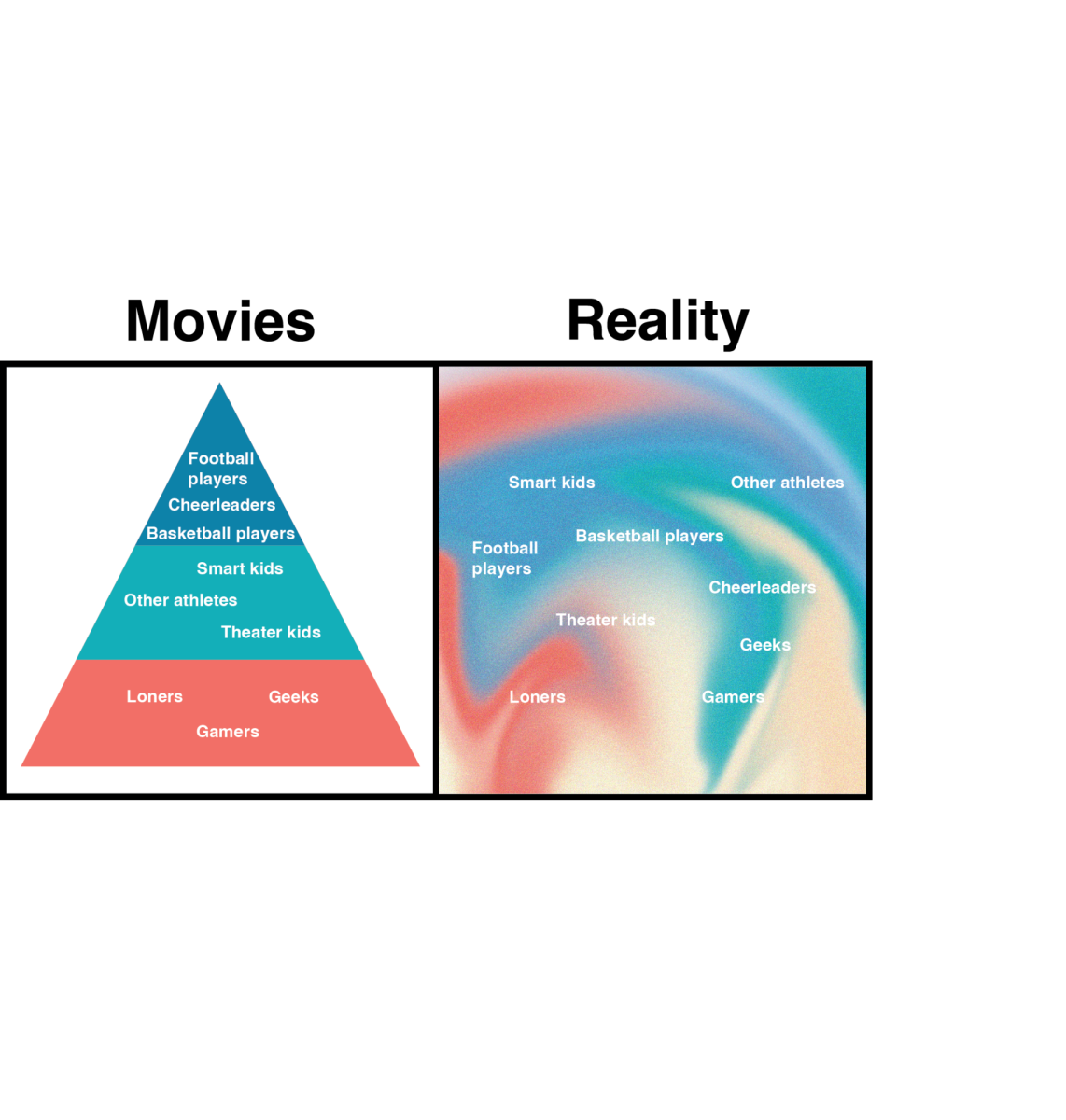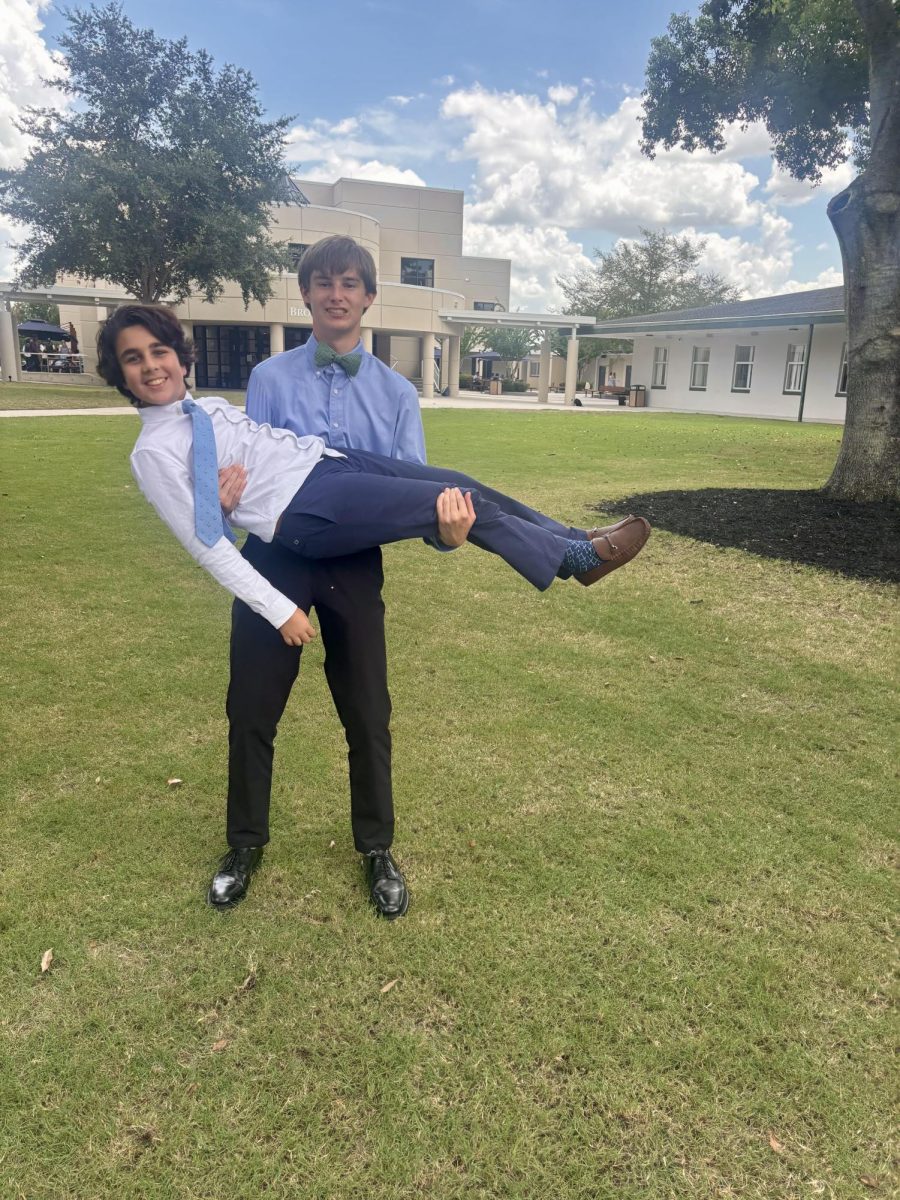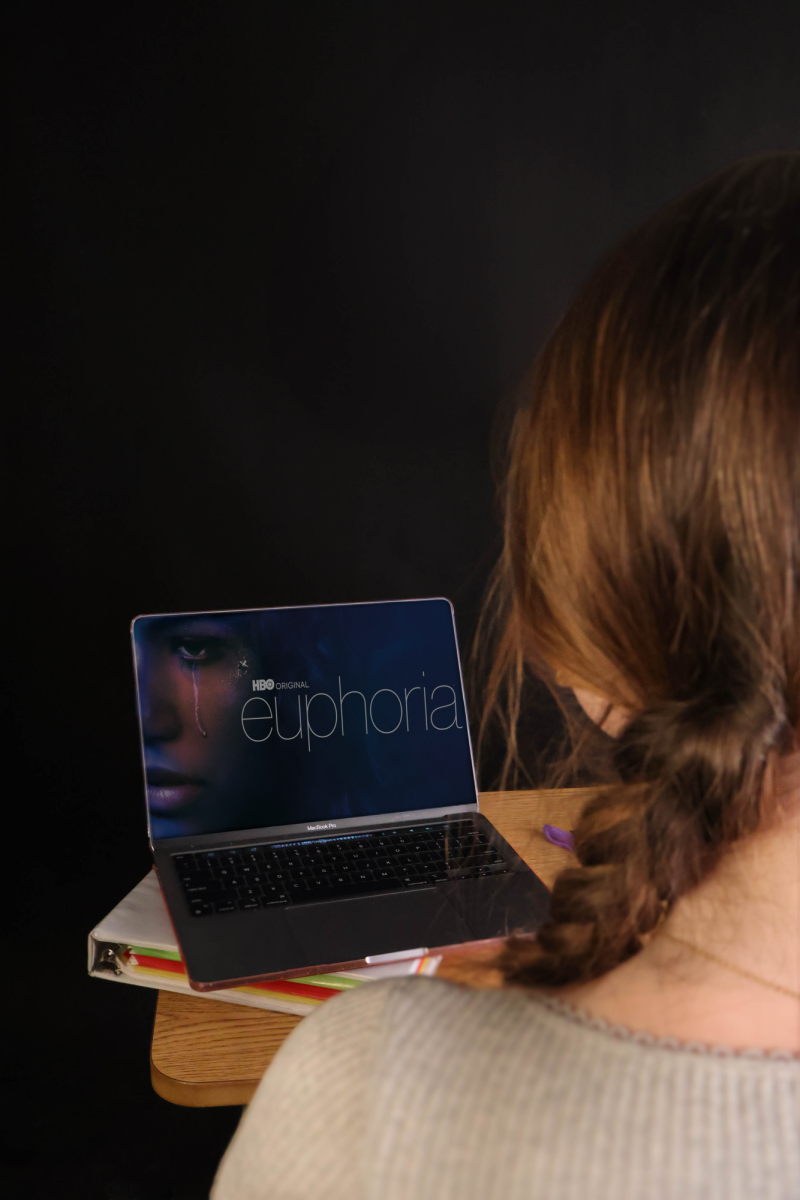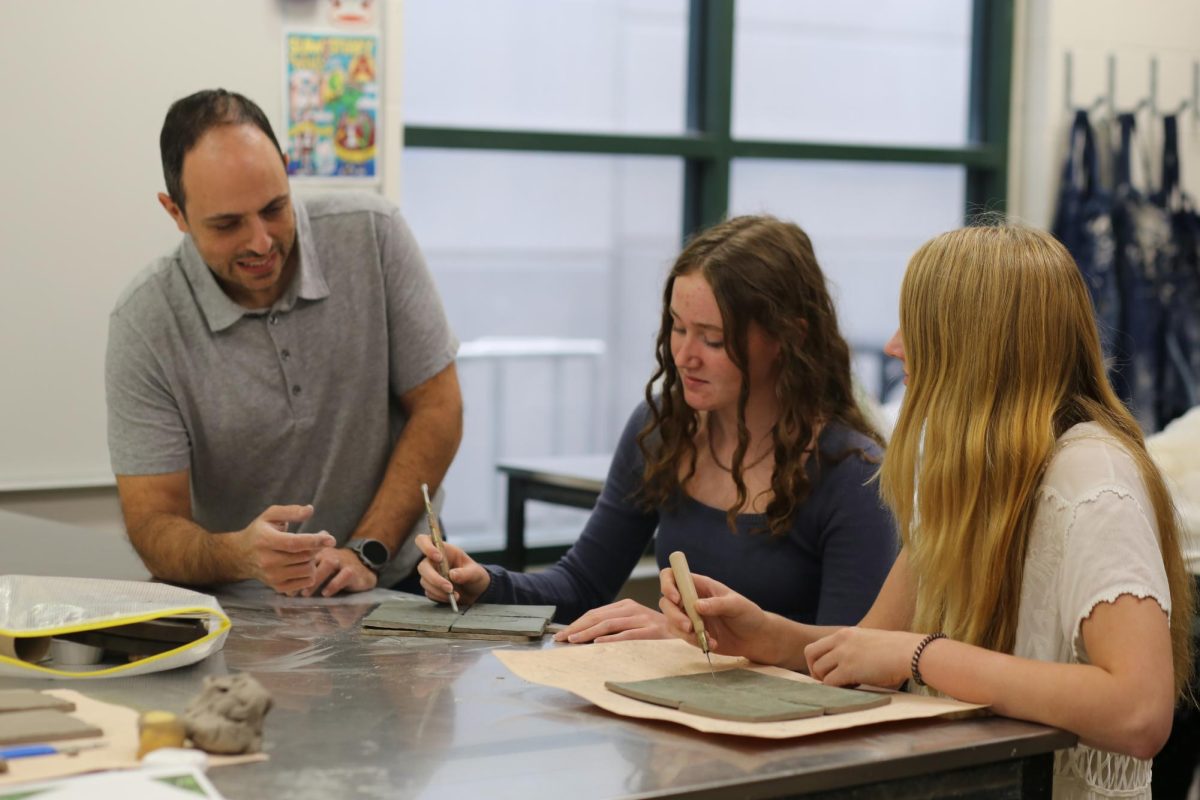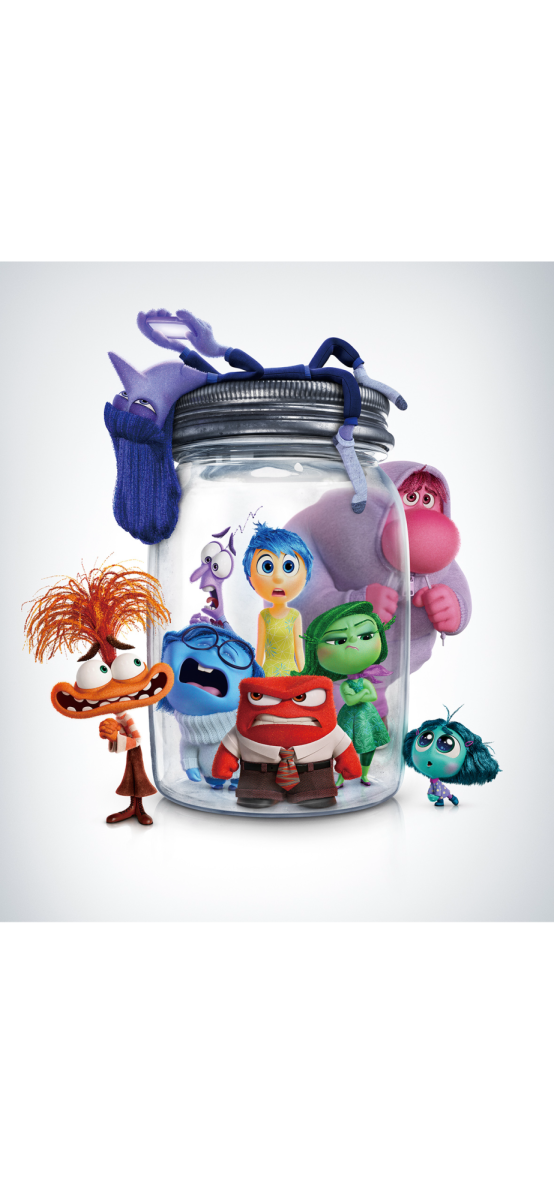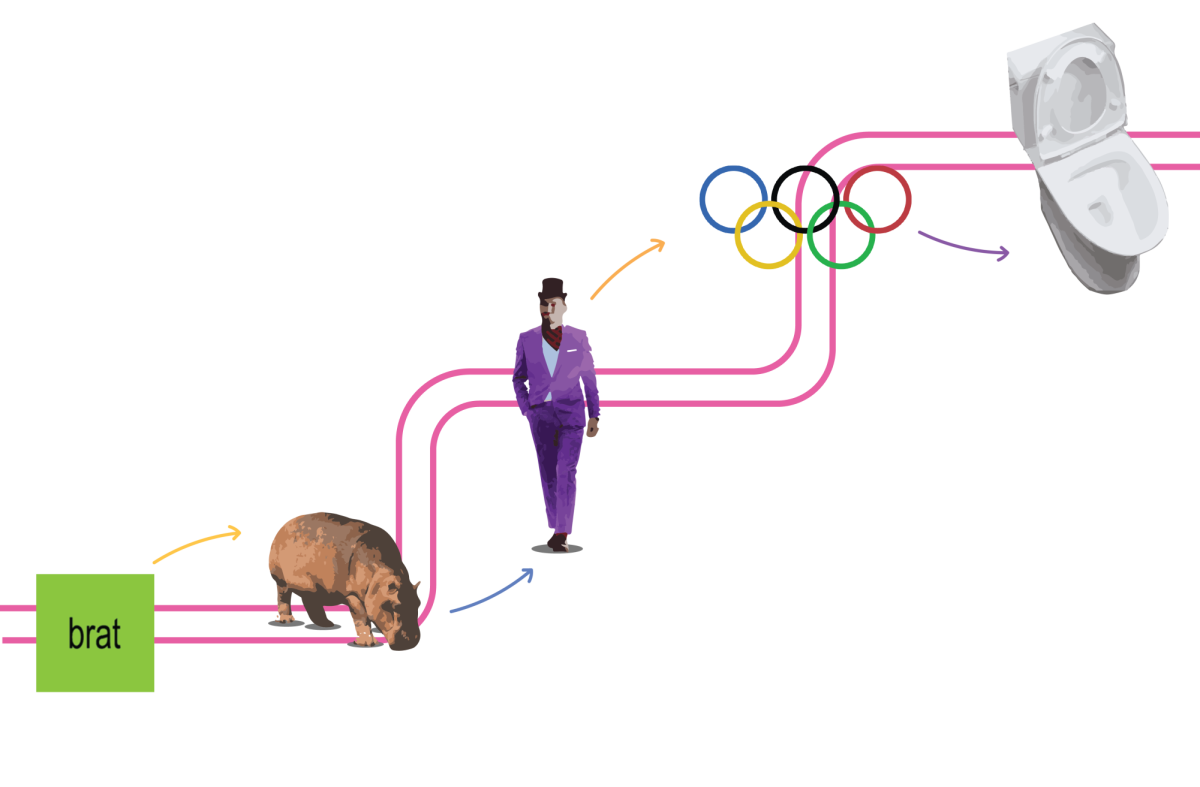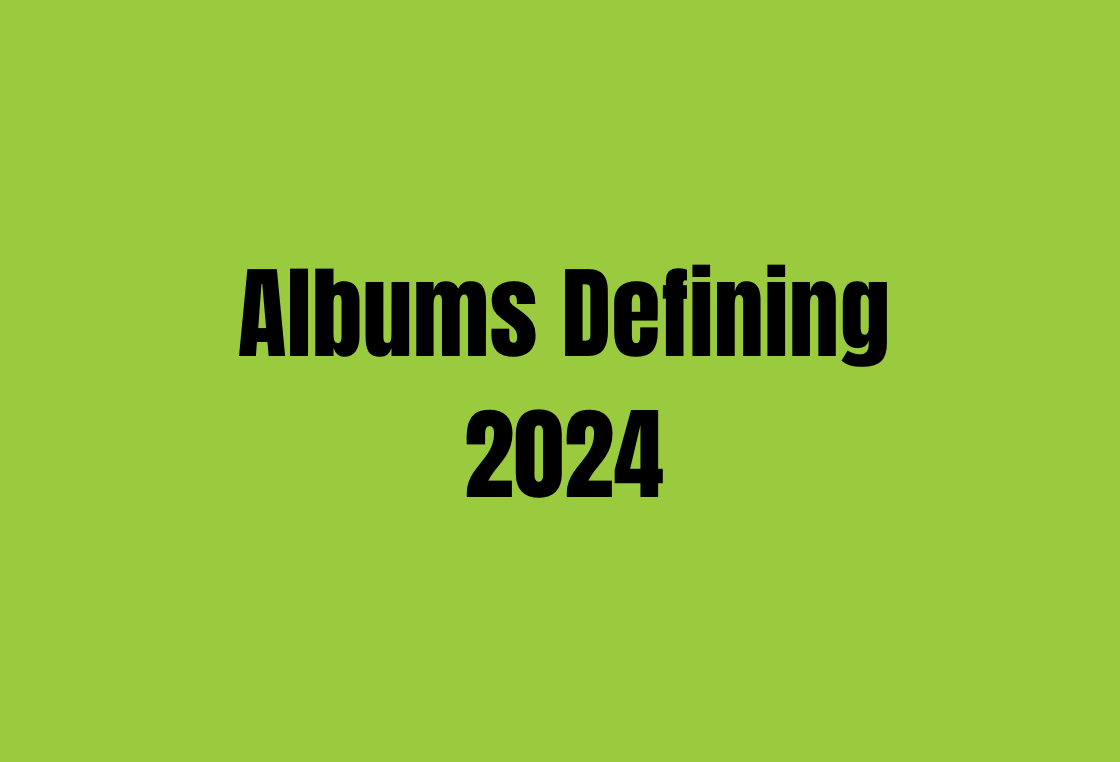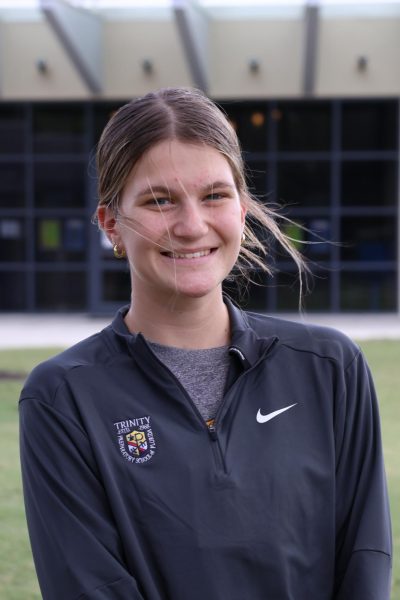The cult classic movie, “Mean Girls,” portrays an extreme version of high school popularity through superficial cliques, usually with one set of queen bees who run the school, have all the attention from the rest of the school. Meanwhile, Trinity’s social ladder works a little differently than what movies potray. While movies portray a hierarchical social ladder, Trinity’s social groups are much less extreme.
“In a way, everyone is one big friend group but separated partly into their own groups,” senior Evan Glebov said.
However, not everyone thinks Trinity’s social ladder is balanced.
“The popular groups don’t treat others the best, and make fun of you if you’re not similar to them,” sophomore Gabby Rosario said.
These so-called popular groups do not just come from making friends, usually, they spiral from sports. While movies do accurately portray friend groups coming around sports, the o -base in depictions of those groups, leaning far too much into
harmful stereotypes of groups like cheerleaders and football players. Usually, in movies, the stereotype of cheerleaders and football players are the most popular in school, but at Trinity, this isn’t necessarily true.
“Cheerleading defnitely gave me more friends in my grade and other grades, but it did not really make me popular with
other people,” Rosario said.
Although movies often show football players as the most popular students on campus, junior Ishan Choksey believes that being a part of the Trinity football team does not change his social status.
“My social status doesn’t really change because the football team isn’t that good, and we’re also a small school, so we all essentially know each other,” Choksey said.
Psychology teacher Michael Brown also believes that at Trinity there are not really any clear cut cliques of students like there are in the movies.
“To some degree, there are cliques, there are clear groupings that I would deem as getting the student council votes,” Brown said. “But I don’t think I ever notice any of the Regina George ‘we wear pink on Wednesdays’ thrown at others, the students that are more popular don’t seem inherently more evil.”
Even though Trinity is different from the movies, other schools, such as public schools, still have these cliques in place.
“Going from a public to a private school wasn’t as bad as people think it’s going to be, the social ladder is de nitely way di erent,” said Glebov, who started Trinity as a junior after transferring from Hagerty High School “I feel like there isn’t any popularity at this school just because everyone knows each other and everyone is super connected.”
Meanwhile, Choksey agrees that Trinity’s uniquely small student body means it lacks the social hierarchy of public schools and that portrayed in movies.
“Since Trinity is such a small school and we all know each other I feel like social status is not really a big deal, it’s just about having your friends,” Choksey said.




